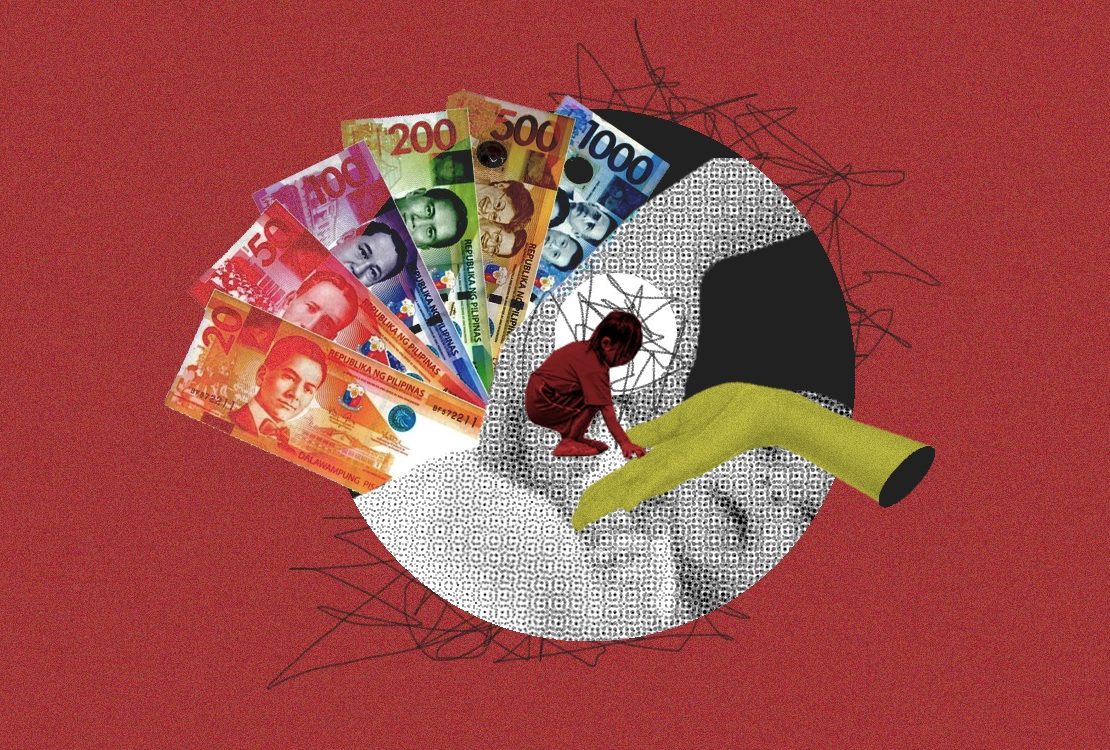Digging deeper into the pages and groups found on Facebook, you’ll find a number of the most outlandish and grotesque kinds of communities. There are groups for people who are passionate about socks and people laughing about relationships, but on an even more serious note, Facebook is a subtle breeding ground for illegal measures. This includes a black market for trading babies in the Philippines.
In a three-part investigative report by Pichayada Promchertchoo from Channel News Asia (CNA), she tells the story of the adoption trade prevalent in the Philippines. Babies, no matter their sex or race, are sold to other families by mothers who choose to give them away. A pregnant woman can simply find a broker who will look for someone who wants to buy the child. They will be given financial support for prenatal care expenses and once the final payment is given to the mother, the broker will take the newborn baby and give them to the buyer, collecting their commission as well. The new mother can now simply sign the birth simulation papers as if she was the biological mother at government offices.
The report mentions that brokers have already sold babies even to families abroad. The babies are relatively cheap. The prices can go as low as P5,000 (US$100) to P25,000 (US$200). However, if the child is good-looking, usually mixed-race, the payment for this can reach P50,000 (US$1,000). This method of earning money by selling off children through undocumented means is blatantly an illegal act under the Anti-Trafficking in Persons Act of 2003, as there are no consequent updates on the children after they are given off to a new parent. Whether they are taken care of, abused, or even alive, is no longer a concern for the biological mother and the broker.
This act of commercial adoption is qualified as human trafficking which is punishable under Philippine law by life imprisonment or a minimum fine of P2 million. However, it continues to happen in the country, and it’s evolved from word-of-mouth whispers from neighbor to neighbor into the gutsy move of going online, publishing possible transactions on Facebook. Behind these illegal motions is one culprit we’re most familiar with: poverty.
Desperate times, desperate measures
To the average, well-off citizen, these illegal adoption methods may seem like a complete violation of human rights. No one in their right mind would just sell children to strangers they wouldn’t even get the chance to meet, right? Yet, for the mothers and families living in the slums, selling babies is a norm.
The CNA report recounts the experiences of a baby broker, under the name of Joyce, as she explains how she has already spent a number of years in the illegal business, having sold 27 babies in total. Added to this, I personally grew up with a mother who came from the squatters area in Negros Occidental and to this day, she can still name a few people who would broker and also abort children for a price. This just shows that these methods aren’t new occurrences. It’s actually become a source of livelihood.
According to the United Nations Children’s Fund (UNICEF), “Trafficking in children is a global problem affecting large numbers of children. Some estimates have as many as 1.2 million children being trafficked every year.”

All of this boils down to poverty yet again. It is the poor communities in the country that are more susceptible to these cases of commercial adoption. In the slums, where education is scarce and jobs in red light districts are easier to attain, women are most likely to have unwanted pregnancies and would not want to raise a child. To them, selling children for a great sum of money is a safety net that can alleviate them from future expenses and troubles.
In the second part of the report, a woman under the name of Christine is about to sell her two-month child. She says, “It’s not that I want to sell my kid. I just need money.” Commercial adoption is a financial opportunity for people like her. Going through a legal adoption can’t be an option for them because first and foremost, there is no financial gain in simply giving away a child. On top of that, it would cost them legal and judicial affairs that ask too many questions. They may even have to spend extra for transportation and certifications. “People say they have too many questions,” Christine told CNA. “I only want to be asked once, like if I want to keep the baby.”
A case of Robin Hood
The government’s ignorance and insensitivity to the poorer sectors of the Philippines has created a black market for illegal adoption to alleviate families from poverty. Of course, it is illegal to sell babies, but can we really place all the blame on these mothers? They are addressing their poverty, with the money they earn being used to help other members of their family, send them to school, or build a livelihood that can sustain them for a longer period.
Of course, when you are grovelling for food while stuck in the gutters of society, a wad of cash is more attractive than another mouth to feed.
This begs the question: Who is out there really helping the poor? The government is certainly only offering simple band aid solutions with a strong focus on eradicating the poor, rather than actually helping and empathizing with them. On the other hand, these mothers and brokers are looking out for each other. It’s all about money, at this point—a classic case of Robin Hood: Whoever can give you a financial opportunity is a friend. And you know there’s something wrong with the government’s system when the poor can help the poor better than the government.
It’s all about money, at this point—a classic case of Robin Hood: Whoever can give you a financial opportunity is a friend.
In a previous article, we talked about how the poor are lauded for arduous labor when the blame should be pointed at the country’s bias towards the rich for leading them to these circumstances. The same argument arises in this issue of commercial adoption—how corruption has placed all the money in the pockets of the rich while the poor become poorer, and thus resort to desperate measures. What’s more is that these cases are just another sign of the government’s non-prioritization of women’s rights.
[READ: There’s something wrong with the virality of arduous labor in the Philippines]
A call for help
First of all, the country, backed by the government and the church, is pro-life. This means that we are a country against abortion. Already, this limits the freedom of women to have a choice on what to do with their bodies. In the case of unwanted pregnancies, abortion can free the woman from having to fend for a child whose needs she may not be able to afford, especially considering the state of poverty in the country. However, if abortion is too much of a far-fetched dream for a primarily Catholic nation like ours, it is important to at least prioritize services and education for women.

Sex education in the country has only recently been gaining traction and it’s only occuring in progressive spaces or from self-education. Women from the poorer sectors and national minorities are still not fully informed about topics like sexual consent and birth control. In addition, there are only a few women clinics that offer contraceptives for free, and still women will only turn to these if they are actually given the information on it. Sex education has to be more accessible, less taboo and a basic right to the Filipino citizen, no matter their background.
However, the bottomline is that poverty is the main reason behind these actions. Whether or not these women are becoming pregnant out of their own will, commercial adoption has become a business born out of desperation. Education and pro-choice laws are only a sliver of what we can do to stop them from turning to these illegal measures. What is really needed is a wake up call for the government, from the media, government officials and a collective say from the Filipino citizens.
Get more stories like this by subscribing to our weekly newsletter here.
Read more:
Terrorism undefined: The Anti-Terrorism Bill is an indication of an authoritarian regime
There’s something wrong with the virality of arduous labor in the Philippines
To these women in MILF, peace and security means reclaiming their rights
Writer: AND ART THEA TORRES




